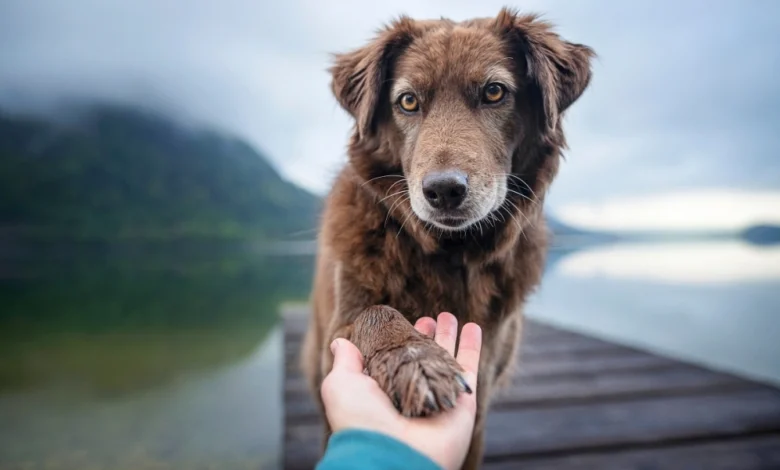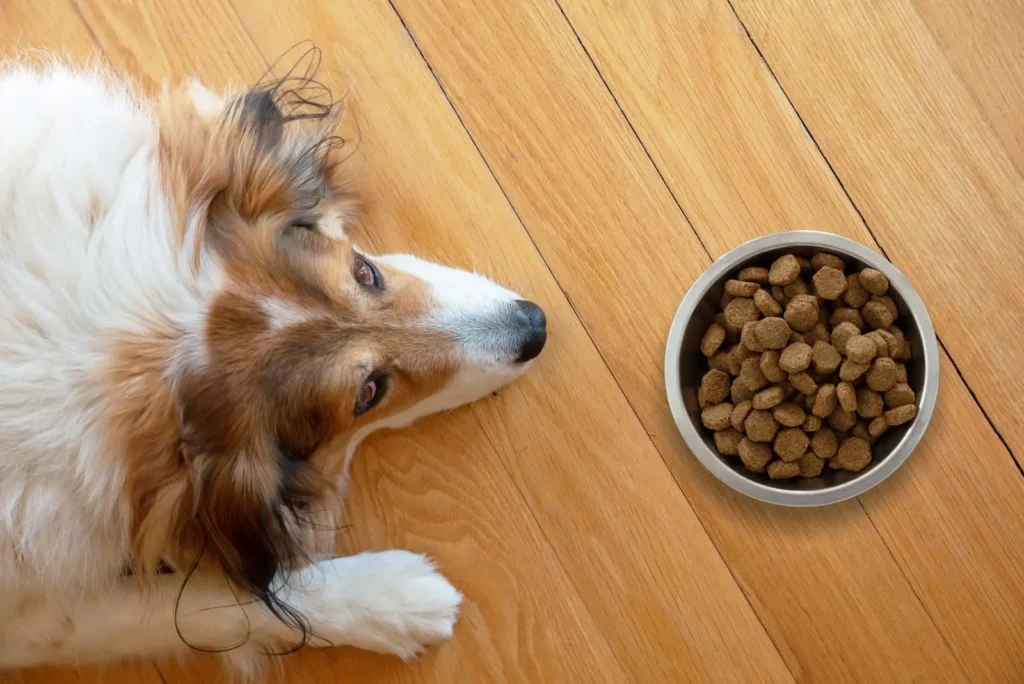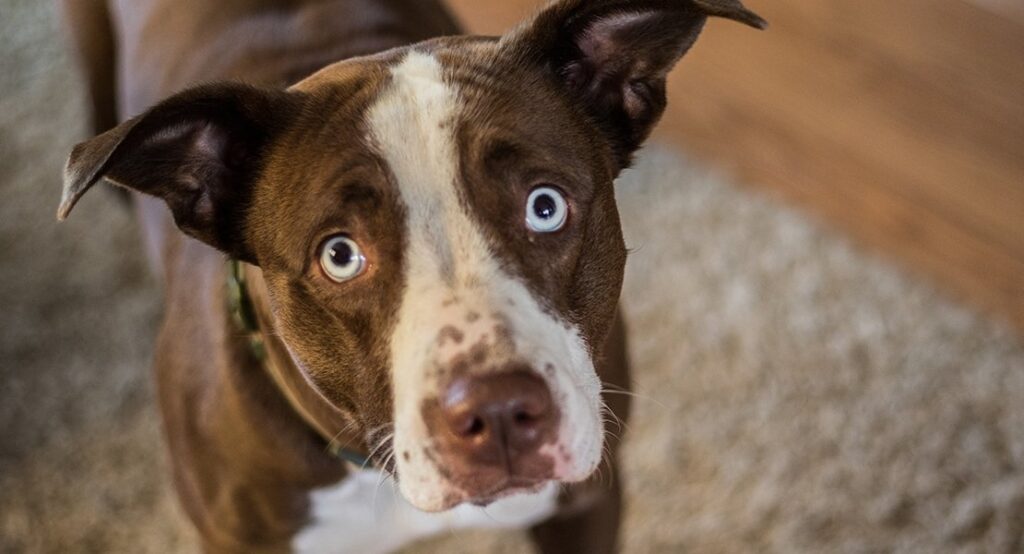Top 8 Signs Your Dog Is Telling You That They Need Help

According to data, there are 13 million pet dogs worldwide, and we guarantee you every single one of those dogs is capable of expressing themselves. Dogs are some of the most loving creatures on the planet, and it’s difficult not to notice when they need help.
Dogs communicate pretty well with their owners through body language, but sometimes those signals can get lost in translation. We’ve created this helpful guide to help you identify these signs that your dog is telling you they need help.
1. Lethargy and Lack of Motivation

Lethargy and lack of motivation are signs that your dog is sick or injured. When your pup seems sluggish, it may be difficult for them to get up from lying down. They may also not want food or water, which can be a sign that vomiting has occurred. Lethargy can also be a symptom of pain or illness in dogs.
Lethargy differs from depression as it occurs without any mood or activity level changes. If you notice your dog has lost interest in playing with toys or other pups, they may be uncharacteristically sad or depressed. However, if they have no energy, it’s likely due to physical illness rather than emotional distress.
2. Vomiting
Vomiting is one of the most common signs that your dog needs help. If you see your dog vomiting, it’s essential to take them to a vet as soon as possible. If your dog is vomiting for more than 24 hours, see a vet immediately, and don’t try to wait for an appointment. The problem may be too severe for your regular vet clinic.
Vomiting can be caused by many things like food poisoning, other illnesses like pancreatitis (inflammation of the pancreas), parasites, or even cancer. So if you notice this sign in your pet, be sure to consult with a veterinarian immediately since there are many reasons why dogs might vomit, and not all of them are benign.
3. Frequent Urination

If your dog is urinating more frequently than it usually would, it could signify something is wrong. As puppies and young dogs, they often drink more water when sick. You should also be aware of any change in your dog’s urine color. If there are changes in color or smell, this indicates that something has gone wrong with their body.
Not only can frequent urination indicate illness, but it can also mean that your dog has been exposed to chemicals (like paint) or other poisonous materials that may cause problems with the organ systems in their body. If you think this may be happening to your pup, take them to see a veterinarian right away.
4. Excessive Drinking
Animals need water to stay hydrated, just like humans. Dogs and cats can get dehydrated if they don’t drink enough water. If your dog suddenly starts to drink more than usual, it’s a good idea to take them in for a checkup.
If you notice that your pet is drinking an unusual amount of water (more than the average for their breed), it’s best to take them in for medical attention as soon as possible. Just because a behavior change isn’t profound doesn’t mean that there isn’t anything wrong.
5. Lack of Appetite

If your dog suddenly loses interest in food and is eating less, it may be a sign that they are sick or depressed. According to PetMD, anorexia for more than 24 hours should not be ignored, and you must see your vet immediately.
If you notice that your dog has been eating less frequently but still wants to eat when offered food, it may not be an issue of appetite. A lack of appetite can be caused by pain or discomfort. If you notice this change in behavior and think it’s unusual for them, it may be time to schedule a visit with your vet.
A sudden change in appetite can also indicate that something serious is wrong with your dog. Dogs are pack animals who rely on their owners for guidance. If they’re experiencing pain or discomfort and need help, they might not want to eat if they feel like doing something wrong.
6. Dermatological Changes
Skin changes are a common sign of illness in dogs. If your dog changes skin color, texture, or hair growth, it could be related to a health condition. You should pick up topical ointments for skin issues from an online store like PetCareRx. But if even those ointments fail, there might be some severe underlying case that needs your vet’s attention.
For example, inflammation on the skin is often due to allergies or other immune system disorders. Some dogs may develop an allergic reaction that causes their skin to itch and become dry (atopic dermatitis). According to a report, the global canine atopic dermatitis market has been growing because of indoor and outdoor air pollution. If you live in a location where pollution is severe, you should look out for skin conditions in your dog.
If your dog’s skin is red and inflamed with bumps or blisters anywhere on their body, it may be caused by some infection, like fleas or bacteria entering through their pores or cuts in their skin. It can happen during rough play with other animals at the park. You’ll want to take them to see a veterinarian as soon as possible so they can get adequately treated before the problem becomes worse.
7. Moaning and Groaning

A dog who is moaning and groaning may be in pain. Dogs do this when they are in discomfort or even when they feel a little under the weather. It’s a warning sign that something isn’t right, and paying attention to what your dog is trying to tell you is essential. If your dog seems to groan more often than usual, visit their veterinarian as soon as possible.
When dogs moan and groan, you should take those sounds seriously. They’re not just doing it for fun. If your dog is making these noises frequently, take them immediately so they can get any necessary treatments quickly.
8. Constipation or Diarrhea

To begin with, it’s essential to know that your dog can communicate their needs in multiple ways. They use body language and facial expressions to express emotions and discomfort. If you’re paying attention, your dog will let you know when they need help.
One way that dogs can tell us they are uncomfortable is through bodily changes like constipation or diarrhea. While these two signs can mean different things for a dog, they both involve similar symptoms like stomach pain, nausea, and vomiting.
Diarrhea can be caused by food allergies, dietary changes, or stress. This type of diarrhea is usually associated with an overactive immune system response due to an inflammation in the intestines caused by parasites or bacterial infections such as E-coli (Escherichia coli).
Conclusion
If you notice any of these symptoms in your dog, you must make an appointment with a veterinarian as soon as possible. It is also recommended that you keep a detailed log of what’s been happening over the past few days to give them all the information they need when visiting the vet.



